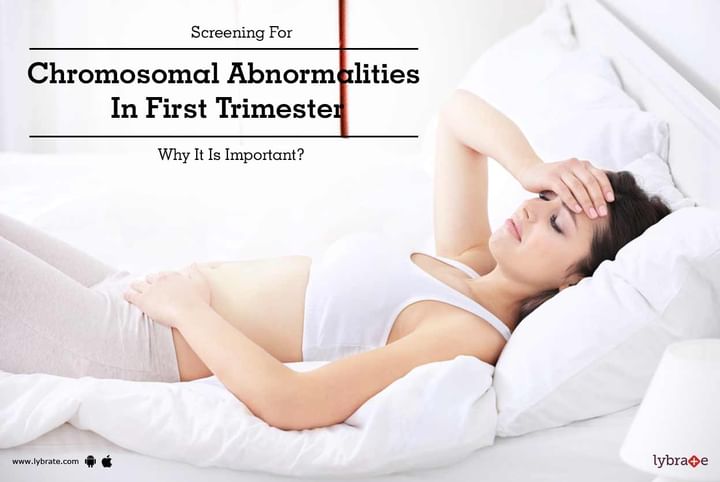Screening For Chromosomal Abnormalities In First Trimester - Why It Is Important?
First-trimester screening is a prenatal test. It is conducted to get early information about a baby's risk of certain chromosomal conditions. It can detect conditions like Down syndrome (trisomy 21) and extra sequences of chromosome 18 (Trisomy 18).
It is usually conducted in two steps:
- Blood test
- Followed by USG
Initially, a blood test is conducted to ascertain the levels of two pregnancy specific substances in the mother's blood. The blood is tested for pregnancy associated plasma protein and human chorionic gonadotropin (HCG). Thereafter, a USG is done to find out the size of the clear space in the tissue that is present at the back of the foetus’s neck.
The screening is done between weeks 11 and 14 of pregnancy. The doctor is able to gauge the risk of your baby having Down syndrome or Trisomy 18 by using your age and results of the test. This screening is quite helpful and can guard you against deadly consequences in the future. Down syndrome is known to cause impairments in the mental and social development of the child. Trisomy 18 gets often fatal by age 1. However, first screening doesn’t find out the risk of neural tube defects.
It is the first screening done in pregnancy. It can be done before any other screening. Thus, the results are known at an early stage. You will get time to think about the future consequences can help you in deciding your course of action and the decision to either continue or terminate the pregnancy. You will be ready to know and decide whether you will be able to live and take care of a baby with special needs. You can conduct other screenings later in pregnancy. You must know that first-trimester screening is treated as being optional. It can detect the risk and cannot tell you whether your baby has the problems in real or not.
Often women get worried about the test and it’s after effects. However, there is no need to worry. It will not harm your pregnancy. The foetus remains untouched and safe during the screening. It will not lead to any miscarriage or any other complication.
A practitioner will collect your blood by inserting a needle into your veins. The blood is then sent for testing to the lab. You can resume your usual daily activities. The ultrasound will need you to lie on your back on a table and the technician will put a transducer on your abdomen. The sound waves will be changed into digital images that the technician will refer to. You can get back to your normal routine as soon as the test is over.
In case you have a concern or query you can always consult an expert & get answers to your questions!



+1.svg)
